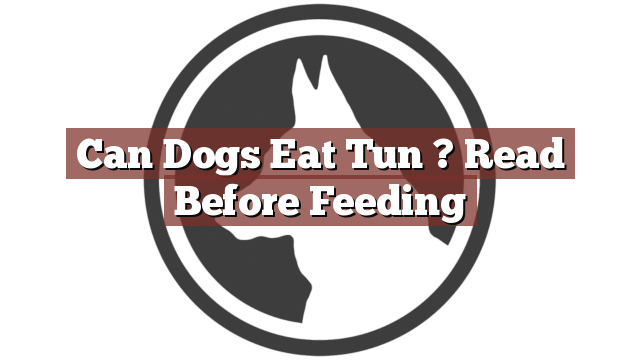Understanding Your Dog’s Dietary Needs
As a responsible pet owner, it is essential to understand your dog’s dietary needs. Dogs are omnivores, which means they can eat both meat and plant-based foods. However, their nutritional requirements differ from ours. While some human foods are safe for dogs to consume, others can be harmful or even toxic. Therefore, it is crucial to be well-informed about what you can and cannot feed your furry friend.
Can Dogs Eat Tuna? Read Before Feeding
Can dogs eat tuna? Many dog owners wonder whether it is safe to share their favorite seafood, tuna, with their canine companions. The answer is yes, dogs can eat tuna, but it should be given in moderation. Tuna can be a healthy addition to your dog’s diet as it is packed with protein, omega-3 fatty acids, and essential minerals. However, there are a few things to consider before serving tuna to your furry friend.
Pros and Cons of Feeding Tuna to Your Dog
Feeding tuna to your dog has its pros and cons. On the positive side, tuna is an excellent source of protein, which helps in building and repairing tissues, supporting the immune system, and promoting healthy skin and coat. Additionally, omega-3 fatty acids found in tuna can provide numerous health benefits, including reducing inflammation and improving brain function.
However, there are a few potential drawbacks to be aware of. Tuna can be high in mercury, especially in larger species like albacore tuna. Mercury can be toxic to dogs and may lead to health issues such as neurological problems. Moreover, tuna packed in oil or seasoned with excessive salt or spices can be harmful to your dog’s digestive system. It is important to choose canned tuna packed in water and avoid any added seasonings.
In Conclusion: Weighing the Risks and Benefits of Tuna for Dogs
In conclusion, while dogs can eat tuna, it should be given in moderation and with caution. The key is to choose high-quality tuna packed in water and avoid any additional seasonings. If you decide to introduce tuna into your dog’s diet, start with small amounts to see how your dog reacts. Monitor your furry friend for any signs of digestive upset, such as vomiting or diarrhea. Finally, remember that a well-balanced, complete dog food is the foundation of a healthy diet for your canine companion, and any additions like tuna should only complement their overall nutrition.
By understanding and respecting your dog’s dietary needs, you can ensure they receive the proper nutrition and lead a happy and healthy life. If you have any doubts or concerns about what your dog can safely consume, it is always best to consult with your veterinarian to make informed decisions regarding their diet.
Thank you for taking the time to read through our exploration of [page_title]. As every dog lover knows, our furry friends have unique dietary needs and responses, often varying from one canine to another. This is why it's paramount to approach any changes in their diet with caution and knowledge.
Before introducing any new treats or making alterations to your dog's diet based on our insights, it's crucial to consult with a veterinarian about [page_title]. Their expertise ensures that the choices you make are well-suited to your particular pet's health and well-being.
Even seemingly harmless foods can sometimes lead to allergic reactions or digestive issues, which is why monitoring your dog after introducing any new food item is essential.
The content provided here on [page_title] is crafted with care, thorough research, and a genuine love for dogs. Nevertheless, it serves as a general guideline and should not be considered a substitute for professional veterinary advice.
Always prioritize the expert insights of your veterinarian, and remember that the health and happiness of your furry companion come first.
May your journey with your pet continue to be filled with joy, love, and safe culinary adventures. Happy reading, and even happier snacking for your canine friend!

